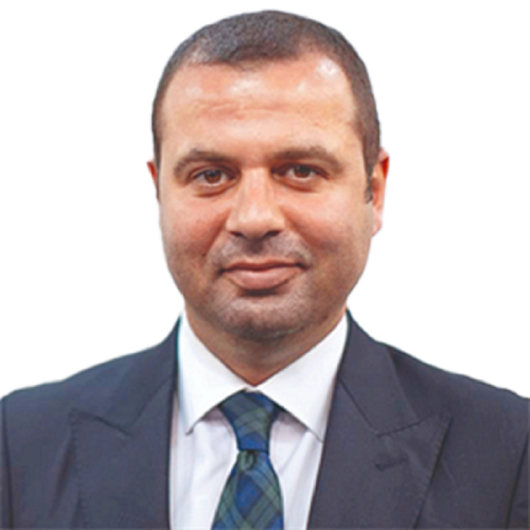Some significant developments got lost in the dust cloud raised by the crash of Iranian President Raisi's helicopter. I'm referring to a secret meeting in Oman, which took place exactly a week before the crash. Brett McGurk, the U.S. National Security Council Coordinator for the Middle East and North Africa, met with Iranian officials there. Since the meeting was secret, we only know what we're told or what they want us to know. However, we have some questions and suspicions we'll express.
Here's what we're told: The U.S. administration is trying to prevent the crisis in the Middle East from escalating into a regional war, hence their engagement with Iran. They began these contacts right after October 7. Initially, they communicated through intermediaries (China). In this process, the U.S. sent a message to Iran: "Rein in Hezbollah, and if you're going to get involved in the tension, do it in a controlled manner." They also made another offer, which we’ll address shortly.
Iran engaged in the process not through Lebanon but via Yemen. Due to the distance, the intervention had a minimal impact and was controlled. It was more about appearances, aiming to show their domestic and regional audience that they were taking action, which is understandable.
In the subsequent period, American and Iranian officials held their first meeting in Oman in January. During the missile tension sparked by Israel's attack on Iranian commanders in Damascus, direct contact was made. Both the U.S. and Iran aimed to prevent the tension from spiraling out of control. Consequently, Hezbollah disappointed Hamas by staying out of the conflict. However, this policy did not stop Israel from attacking Hezbollah in Lebanon.
The U.S.'s attempt to control Iran through communication stems from understanding Israel's primary goal. Israel aims to draw Tehran into the crisis by directly targeting Iranian elements, trying to turn the tension into a regional war. Israel's decision to create a buffer zone in southern Syria and Lebanon dates back to 2019. The Tel Aviv administration is trying to capitalize on the October 7 attacks to implement this plan, a strategy premeditated long ago. The U.S. is also part of this strategy.
'RUN, RABBIT, RUN' POLICY
Washington is playing a double game. They're pressuring Netanyahu while trying to block the International Criminal Court's arrest warrant for the Israeli Prime Minister. They tell Israel to allow humanitarian aid but turn a blind eye to the closure of the Rafah border crossing. They say, "Don't let the war spread to the region," but they're negotiating with Iran on Israel's behalf.
Another proposal the U.S. has made to Iran to prevent the war from spreading regionally is to pull Hezbollah back north of the Litani River, away from the Israeli border. Other developments support this trajectory. Last week, the Israeli media reported that Israeli security units, in conflict with Netanyahu, favor "defeating Hamas and ending the war by pushing Hezbollah away from the border." On May 1, the Israeli Chief of Staff stated, "We are preparing for an attack on the north (Lebanon)." On the day Raisi died in the helicopter crash, the Israeli army announced it had killed a Hezbollah field commander in southern Lebanon.
A significant negotiation is underway. Iran, with its extensive militia power and ideological influence in the region, is being encircled and its influence curtailed. This sets the stage for Israel to create a buffer zone in the north. So far, so good. But is that all there is?
IS THE PKK ON THE TABLE?
Let's not forget: Brett McGurk, who participated in the secret meeting with the Iranian side, is known for his support of the PKK, a terrorist organization, within the U.S. administration. He is a close friend of Bafel Talabani and has been both a mentor and supporter of the PKK's efforts to unite northern Syria and Iraq. He is the person behind the name of the SDF and has visited terror camps in Syria, posing with high-ranking terrorists. His relationship with the terror organization cannot be explained rationally.
A brief aside: We previously wrote that the U.S. wants to exit the region and discuss the PKK issue with Türkiye. We've noted that the State Department and the CIA support withdrawing from the region to focus on China, while CENTCOM wants to continue the current policy. At least, sources in Ankara categorize it this way. In summary, the future of the PKK in a Syria without the U.S. is being debated.
It's well-known that Brett McGurk has worked hard to maintain the U.S.-PKK relationship. Therefore, it's safe to say he's aligned with CENTCOM. If McGurk negotiated with Iran regarding Hezbollah, it stands to reason that he would have put some issues on the table in exchange, given the nature of diplomacy and bargaining. During a period when Türkiye is discussing the Development Road with Iraq, did McGurk bring up the PKK with the Iranians? If so, what did he propose? How was the issue framed? Ankara needs to monitor this situation carefully.




















